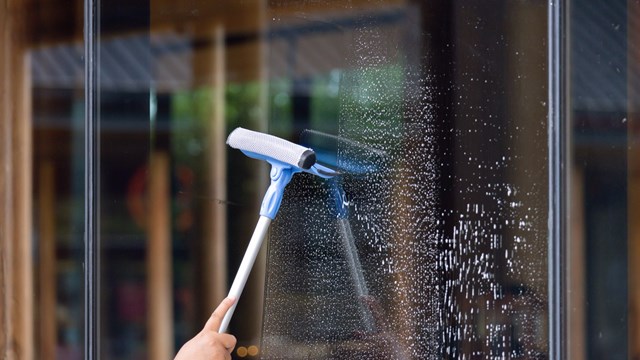
As awareness of the environmental impact of consumerism has been increasingly accepted, recycling has grown in popularity throughout the country. Municipalities have approached the issue in varying ways with policies affecting homeowners, condo associations and property managers.
Recycling in the greater Chicagoland area is usually something that is handled independently among municipalities on a city-by-city basis. There is no statewide standard for how recycling in each community is handled.
But not every city has a majority of their communities covered—and surprisingly, Chicago is among the few that has struggled with enforcement of a citywide recycling program.
Oh, Those Little Blue Bins
Chicago has a single-stream recycling program, called the Blue Cart Recycling Program, which provides recycling pickup service to residents that live in homes or buildings with four units or less. All other building landlords are required by city ordinance to obtain recycling for their tenants—but this policy often falls through the cracks given the size of the city.
“Everything else has to be outsourced by the condo building’s obligation to recycling,” said Adam Goldstein, a board member of the Chicago Recycling Coalition/Do the Right Thing Recycling.
As a result of the reliance on landlords for recycling services, many apartment buildings are left without recycling opportunities because of the added cost on landlords. As a result, Goldstein said residents often take other routes to recycle.
“Some bring it to work, some find a blue bin that’s someone else’s,” Goldstein said. “In addition to the drop off centers there are other places where you can get paid in exchange for turning in your aluminum.”
Goldstein is part of the Chicago Recycling Coalition, an advocacy group that is rallying for a change to the city’s recycling system.
“A lot of condo associations don’t even know about the ordinance, it’s kind of swept under the rug,” Goldstein said. “We’re advocating for a better system—we’re trying to educate people so that they’re aware. People will do this, but because there’s no enforcement and minimal education, people don’t get it done.”
The city encourages residents without the service to drop their materials off to one of the 38 dropoff centers that the city has. The city collects materials including paper, cardboard, plastics, glass, tin and aluminum, according to its website.
“There’s a direct correlation between education and the lead by example approach, that when people witness recycling going on they recycle more,” Goldstein said. “We’ve found that as soon as our clients get the bin in front of them, they gravitate to it.”
Despite this however, the amount of recycled material contributed by residents that are eligible for the program has increased yearly.
Chicago has collected a total of 15,820.02 tons so far this year. The program’s collection has steadily increased since 2007—in its first year the program yielded a total of 99,621.97 tons of recyclable material. Last year, the annual yield was a total of 399,149.3 tons of recyclable material, according to the city’s website.
However, a large majority of the city’s waste still ends up in landfills. Fifty-six percent of metals from homes and businesses, 69 percent of discarded paper and 96 percent of food and yard waste all go to landfills, according to a “Waste Diversion Study” conducted by the Chicago Department of Environment.
Better Suburban Response
Recycling in the suburbs, however, seems to be a different matter.
In many Chicago suburbs, recycling is contracted out to a third party waste handler. Waste Management is one of many of these waste companies, which deals with both waste and recycling from within these communities. Most suburbs, given their size, do not have restrictions on recycling pickup for certain-sized building units.
Bill Plunkett, a spokesperson from Waste Management, said that the company covers recycling and other waste management for thousands of suburban residential and commercial customers in over five counties.
The company operates based off of a single stream recycling method—the same method as the city of Chicago’s program—which enables residents to forget the worries of pre-sorting their recyclable materials. Plunkett said recycled materials are taken from trucks and separated at the sorting facilities by machine, saving both money and time for the company and the consumer.
“Once we collect the materials, we take it to the material recovery facilities, sort it, and process the material into its various components. We then ship it to markets and manufacturers that can use it for new products.”
Waste Management has two sorting facilities that serve their suburban customers, located in Grayslake, Ill. and the south side of Chicago.
Plunkett said Waste Management collects a large array of recyclable materials from residents and businesses.
“We collect a wide range of materials, including paper, newspaper, cardboard, plastic products, tin, metal, aluminum and glass,” he said.
Plunkett said that paper is by far the most commonly recycled material that Waste Management collects.
“By volume the largest is paper,” he said. “It seems homeowners will recycle their daily newspapers, mailings, magazines, and also cardboard containers that they receive with products.”
Originally when the recycling programs through waste management companies began, many of them required residents to sort their recyclables—a feat that many times resulted in less residential participation in recycling because of the effort involved or the uncertainty over dealing with the recyclable materials.
“That proved to be not very efficient,” Plunkett said. “In recent years, we now operate single stream facilities, meaning that residents can co-mingle all recyclables in one container.”
Plunkett said that the newer system not only saves consumers the hassle of sorting the recyclables themselves, but has also contributed to an increase in recycled material as a whole and has saved costs for suburbs.
“It’s been our experience that the new system has increased material since the switch,” Plunkett said. “That’s going to happen anytime you make the process easier.”
Plunkett said decrease in recycling service costs have also led to more competitive bidding among municipalities for contracting their residential services to third parties.
A possible reason for Chicago’s disparity in providing recycling to all its residents—beside the fact that it is such a large city—also relates to cost. Goldstein said that given the fact that Chicago has welcomed a new mayor—Rahm Emanuel—he is unsure how this will affect the recycling program, which was founded under the Richard M. Daley administration.
Funding for the program comes from the city itself, which claims that the recycling program demonstrates a reduction in cost because of its avoidance of landfill. The city is also receiving a four year grant from the Illinois Department of Commerce and Economic Opportunity for $8 million towards the program.
But although the program costs money to operate, it not only helps the city environmentally but also generates revenue off of the recycled material that is sold back to markets and producers.
As a result, Goldstein said cost isn’t a good enough defense for him.
“I dispute the cost defense because there’s a value to recyclables and living in a city that pays attention to social issues,” he said. “It’s not just cost, it’s not thinking about revenue streams. When people are trying to look to cut budgets, they look to cut recycling. But they’re missing components that might sway decisions the other way.” n
Rosie Powers is a freelance writer and reporter living in Chicago and a frequent contributor to The Chicagoland Cooperator.






Comments
Leave a Comment